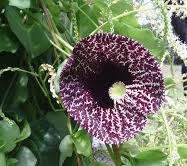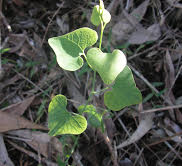The Richmond Birdwing Conservation Network together with Wildlife Qld are currently recruiting volunteers to help with field data collection of Dutchman’s Pipe (Aristolochia elegans) locations around South East Queensland.
Dutchman’s Pipe is an introduced plant from South America, which is toxic and fatal to the larvae of the Richmond birdwing butterfly that ingests its leaves. It is commonly found in gardens, bushland and along waterways.
The data collected will be used for the creation of GIS maps and their analysis will reveal the areas in which Dutchman’s Pipe overlaps with important wildlife corridors. This information will assist in the development of a Targeted Eradication Plan, enabling the RBCN to focus its efforts in removing Dutchman’s Pipe from key threatening locations.
There are some personal benefits to reap from this volunteering work which include:
If you would like to lodge an expression of interest to volunteer, please email Meegan Hardaker at: [email protected] or phone: (07) 3221 0194
- The following pictures of Dutchman’s Pipe vine are courtesy of Phil Moran:



